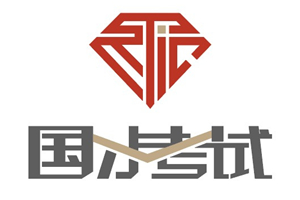Is there a point to exit interviews?
“Do you feel your job description has changed since you were hired?” “What prompted you to start looking for another position?” Such questions are typical of the exit interview, to which an email from HR may invite you after you have handed in your notice. Do you accept? And if so, how honest should you be with your soon-to-be-ex-employer during the discussion?
Just like humans, corporate entities do not want to admit their faults. As such, many companies deal with resignations badly. Exit interviews may help them do better. More important, understanding why workers leave is critical if you want to stop more of them heading for the exit. Recruiting and training top talent is a big cost for firms, particularly those in the service sector, so anything that can be done to reduce staff turnover is valuable. Poaching is part of any competitive industry, so knowing what drew an employee to a different firm can be useful, too. Former employees who leave happy can in future fill a role as corporate ambassadors.
For firms the best exit interview is the one that doesn’t happen. A study conducted by the Harvard Business Review concluded that they should be “the culmination of a series of regular retention conversations”. Such attempts will not work every time, or even often – staff churn is a fact of corporate life. For unsalvageable cases, some firms arrange a one-to-one conversation with the leaver’s manager. Others offer an online form, which is less personal but provides the opportunity to collate feedback easily. Such exchanges are best scheduled after the initial rush of emotion has passed but before the employee has checked out mentally. The information gleaned can be revealing. In some firms, it travels all the way up to the board.
The incentives for a departing employee are less clear. (If you are pursuing legal action against your employer, your lawyer is likely to tell you to avoid the interview altogether.) It is tempting either to ignore everyone and just walk away or, conversely, to really let rip. “When one burns one’s bridges,” wrote Dylan Thomas, “what a very nice fire it makes.” But letting off steam by unburdening yourself of all the wrongs and little things that ever upset you is a shallow game.
The bottom line is, you never know. You can be denied a reference or unnecessarily complicate the paperwork related to your stock options and pension plan. Or you could miss a chance to turn a former employer into a client. Your columnist, a guest Bartleby, has no immediate plans to leave her current job. But if she ever did, and was asked to participate in an exit interview, she would agree to do so – and would advise you to do the same.
As in any break-up, the one with an employer involves dealing with elusive concepts such as decorum (“It’s not you, it’s me”) or closure (“Thank you for everything”). It is also transactional. As such, it pays not to be too candid. Whether the process happens over the phone, on Zoom, in person or in an online form, refrain from speaking your mind too freely. It is better to be excited about your new chapter than to unleash vitriol on colleagues who were unkind or censorious over the years.
Being too diplomatic is safer, unless it devolves into insincere platitudes. “This place is toxic” is bad; “the thing I admire about the leadership team is their long-term vision” may be worse. To strike the right balance, it is useful to think of the exit interview as a performance appraisal in reverse. Outlining what you enjoyed most about the place (the pay, the camaraderie or the coffee) is a good place to start. Explaining what drew you to another employer can be particularly instructive. Gentle suggestions about what you would improve are fair game. Always remember that notes from the interview are official documentation that can be reviewed. Whatever you do, do not post rude comments about your former employer on social media.
In his book “Liar’s Poker”, Michael Lewis tells the story of a senior trader quitting Salomon Brothers after being offered much more money by Goldman Sachs. His managers pleaded for him to stay, invoking loyalty to the firm; the trader retorted that if they wanted loyalty, they should have hired a cocker spaniel. But a good exit interview should be about mutual graciousness when neither party has anything else to lose. For an employee, to deny such a conference shows pettiness and resentment. For a company, it is one last chance to leave a good impression. If you decide to part ways, why not do so on amicable terms?















